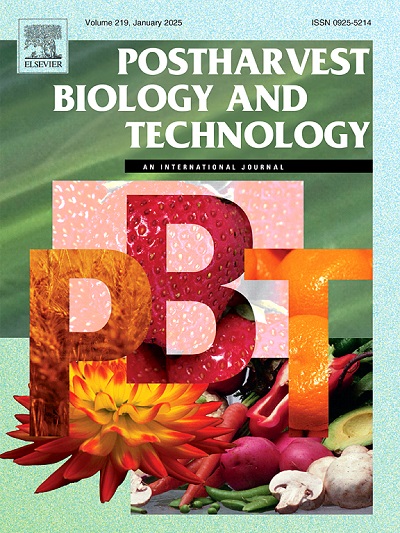Functional analysis of potential fumiquinazoline biosynthetic gene clusters in Penicillium digitatum of citrus
IF 6.4
1区 农林科学
Q1 AGRONOMY
引用次数: 0
Abstract
Penicillium digitatum is a pathogenic fungus responsible for the postharvest green mold of citrus, leading to significant economic losses in the citrus industry. Filamentous fungi have a rich secondary metabolic network, and their products have important applications in medicine. Several secondary metabolites (tryptoquialanines, fumiquinazolines, and so on) have been identified in P. digitatum. However, the molecular networks regulating the biosynthesis of secondary metabolites and their gene functions remain to be investigated. For functional analysis of the genes, a homologous recombination knockout strategy was used to generate knockout mutants of seven genes putative to be involved in the fumiquinazoline (FQ) biosynthesis pathway in Penicillum digitatum. LC-MS analysis revealed that the FQ biosynthetic gene clusters mainly regulated tryptoquialanine biosynthesis in P. digitatum. Virulence assessment experiments with knockout mutants displayed that compared with that in the wild type, the onset of green mold was delayed in all the citrus groups inoculated with the seven mutants, revealing that the involvement of the FQ biosynthetic gene clusters positively regulates the virulence of P. digitatum. Furthermore, the survival of the knockout mutants was greatly decreased under ultraviolet (UV-C) radiation, indicating that this gene cluster participated in the UV-C sensitivity of P. digitatum. The present study also revealed that genes in FQ biosynthetic gene clusters regulate low-temperature stress resistance and KCl stress resistance. In summary, this study determined that the FQ biosynthetic gene clusters regulate the biosynthesis of SMs and respond to multiple biological processes in P. digitatum.
求助全文
约1分钟内获得全文
求助全文
来源期刊

Postharvest Biology and Technology
农林科学-农艺学
CiteScore
12.00
自引率
11.40%
发文量
309
审稿时长
38 days
期刊介绍:
The journal is devoted exclusively to the publication of original papers, review articles and frontiers articles on biological and technological postharvest research. This includes the areas of postharvest storage, treatments and underpinning mechanisms, quality evaluation, packaging, handling and distribution of fresh horticultural crops including fruit, vegetables, flowers and nuts, but excluding grains, seeds and forages.
Papers reporting novel insights from fundamental and interdisciplinary research will be particularly encouraged. These disciplines include systems biology, bioinformatics, entomology, plant physiology, plant pathology, (bio)chemistry, engineering, modelling, and technologies for nondestructive testing.
Manuscripts on fresh food crops that will be further processed after postharvest storage, or on food processes beyond refrigeration, packaging and minimal processing will not be considered.
 求助内容:
求助内容: 应助结果提醒方式:
应助结果提醒方式:


